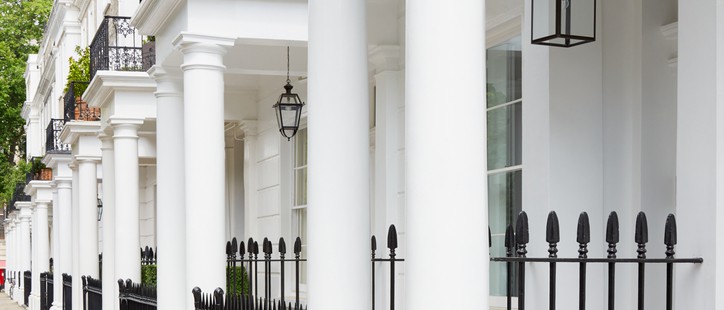Our Opinion: 2017
Global real estate is in a bubble

Many are obsessed with property prices and their being a part of an investment portfolio. UBS have just issued a superbly researched and comprehensive report on ‘bubbles’ in global real estate.Bubble risk seems greatest in Toronto, where values have increased significantly in the last year. Stockholm, Munich, Vancouver, Sydney, London and Hong Kong all remain in risk territory, with Amsterdam joining this group.
In contrast, property markets in Boston, Singapore, New York and Milan seem fairly valued, while Chicago remains undervalued.
International clients continue to be drawn to London, seeing it as a ‘safe’ investment in all circumstances. However, it is worth remembering that a homebuyer in London in 1988 had to wait 25 years, i.e. until 2013, for the investment to outperform the UK average.
The UBS Global Real Estate Bubble Index scores London in bubble-risk territory. The high-end market suffers from oversupply. Prime sales prices and rents have exhibited a downward trend since the middle of last year. Market prices are likely to stagnate from here, and high market valuations and political uncertainty call for cautiousness.
London’s inflation-adjusted housing prices are almost 45% higher than five years ago and 15% higher than before the financial crisis a decade ago. But real income remains 10% lower than in 2007. The rise in house prices has been decelerating since the UK referendum in June 2016, and real prices are 2% lower.
Mortgage rates are at all-time lows. Nevertheless, housing remains highly unaffordable for London’s citizens. A skilled service worker needs to work almost 16 years to buy a 60m2 home near the city centre. Favourable credit conditions and the help-to-buy scheme have kept demand in the lower-price segment high. But the prime market now faces oversupply, as increased stamp duties on luxury and buy-to-let properties hamper demand. As a consequence, sales prices and rents in the high-end segment have fallen in almost all London boroughs since mid-2016.
The fall in the value of the Pound makes an attractive market entry point for foreign investors, whose impact on the market should not be overstated. London house prices may stabilize in the coming quarters. Low affordability, the economic slowdown and uncertainty about the UK’s relationship to the EU are keeping demand in check. On the other hand, supply will slow further this year, considering the decline in housing construction. It would be sensible to be cautious given the high market valuations and enormous political uncertainty.
According to the UBS Global Real Estate Bubble Index, the bubble risk in select world cities has increased significantly over the last five years. These ‘super-cities’ are almost detached from their countries in terms of property values, yet, that economic fundamentals will always catch up with them.
Falling mortgage rates over the last decade have made buying a home vastly more attractive, which increased average willingness to pay for home ownership. In European cities, for example, the annual mortgage interest payments for apartments are still below their 10-year average, despite real prices escalating 30% since 2007. In Canada and Australia, too, a large part of the negative impact of higher purchase prices on affordability has been cushioned by low mortgage rates.
In world cities, the expectation of long-term rising prices firmly supports the demand for housing investment. Many market participants expect the best locations to reap most growth in the long run. Prices in the most attractive cities are expected to outperform average cities or rural areas in the long run. Hong Kong, London and San Francisco are exemplars of this theory.
The intuition is that the national and global growth of high-wealth households creates continued excess demand for the best locations. The superstar narrative has received additional impetus in the last couple of years from a surge in international demand, especially from China, which has crowded out local buyers.
Which cities offers the best value? The UBS study concludes three US cities : Chicago, Los Angeles and Boston. In Chicago, prices are 30% below their 2006 peak. In Boston, population growth is vigorous, supply is slowing and prices are likely to continue to rise. And in Los Angeles, prices remain 20% below their 2006 peak. Housing affordability is stretched and will slow house price growth.
In the past, rising interest rates almost always triggered a crash in housing markets. It would be wise to be conservative when it comes to property investment at the present time.
Alexander Wade
9th October 2017
